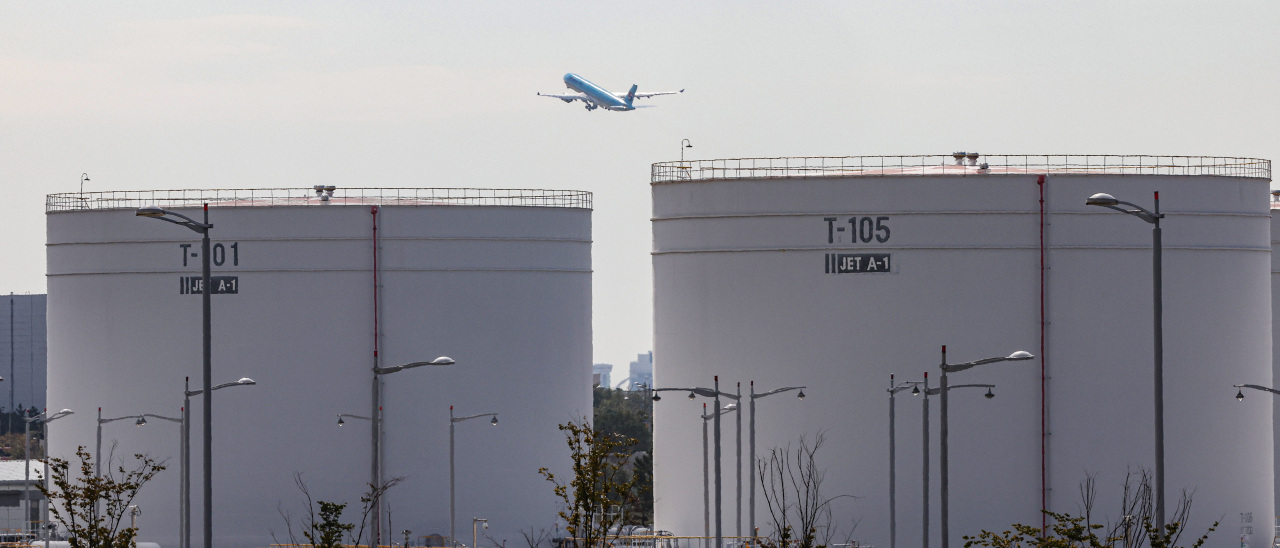 |
Incheon International Airport’s fuel storage tanks are seen Monday, with a Korean Air plane in the background. (Yonhap) |
Rising fuel prices and a weak local currency are dampening the mood for South Korea’s aviation industry, which has pinned hopes for recovery on travel bubbles and the easing of social distancing rules.
The jet fuel price stood at $94.60 per barrel, as of Oct. 8, up 5.8 percent compared to the previous week, according to the latest data from the International Air Transport Association.
Averaging $73.90 per barrel this year, the price as of early this month was also up 17.5 percent compared to the previous month and marked a whopping 111.2 percent year-on-year increase.
Against this backdrop, fuel surcharges -- the fee carriers charge to protect themselves from the volatility of fuel prices -- had also been on a rise until this month.
A fuel surcharge for a Korean Air flight between Incheon and New York is 34,800 won this month, down by nearly 30 percent compared to last month. There was no fuel surcharge in March.
Signs of a weakening Korean won are also growing. The local currency declined to a 14-month low earlier this month, hovering around 1,200 won per dollar at one point, as investors flock to safe haven assets amid escalating inflation concerns.
For both airlines and passengers, rising fuel prices and the strong dollar are bad news.
Rising ticket prices could hurt travel confidence at a time as the country seeks to open up borders.
With fuel accounting for nearly 20 percent of airlines’ operating costs, professor Hurr Hee-young at Korea Aerospace University said fuel surcharges alone will not cover losses caused by growing fuel prices for airlines.
“Tickets sold in the US might yield more profit, but profit from most tickets which are sold at home will take a hit,” Hurr said of the impact of the strong dollar on South Korean airlines.
Earlier this month, South Korea and Singapore agreed to lift quarantine requirements for fully vaccinated travelers between the two countries.
In a further sign of growing travel demand, the Marianas Visitors Authority said last week that over 8,000 people had booked package tours to Saipan.
Saipan became the first overseas destination to launch a travel bubble with South Korea in July.
In a press conference on Monday, Anand Stanley, President of Airbus Asia-Pacific said South Korea has seen the “fastest recovery in the region.“ But a full-scale recovery for the Asia-Pacific region will begin in 2023, he added.
By Yim Hyun-su (
hyunsu@heraldcorp.com)








![[Today’s K-pop] Blackpink’s Jennie, Lisa invited to Coachella as solo acts](http://res.heraldm.com/phpwas/restmb_idxmake.php?idx=644&simg=/content/image/2024/11/21/20241121050099_0.jpg)